Affiliate links on Android Authority may earn us a commission. Learn more.
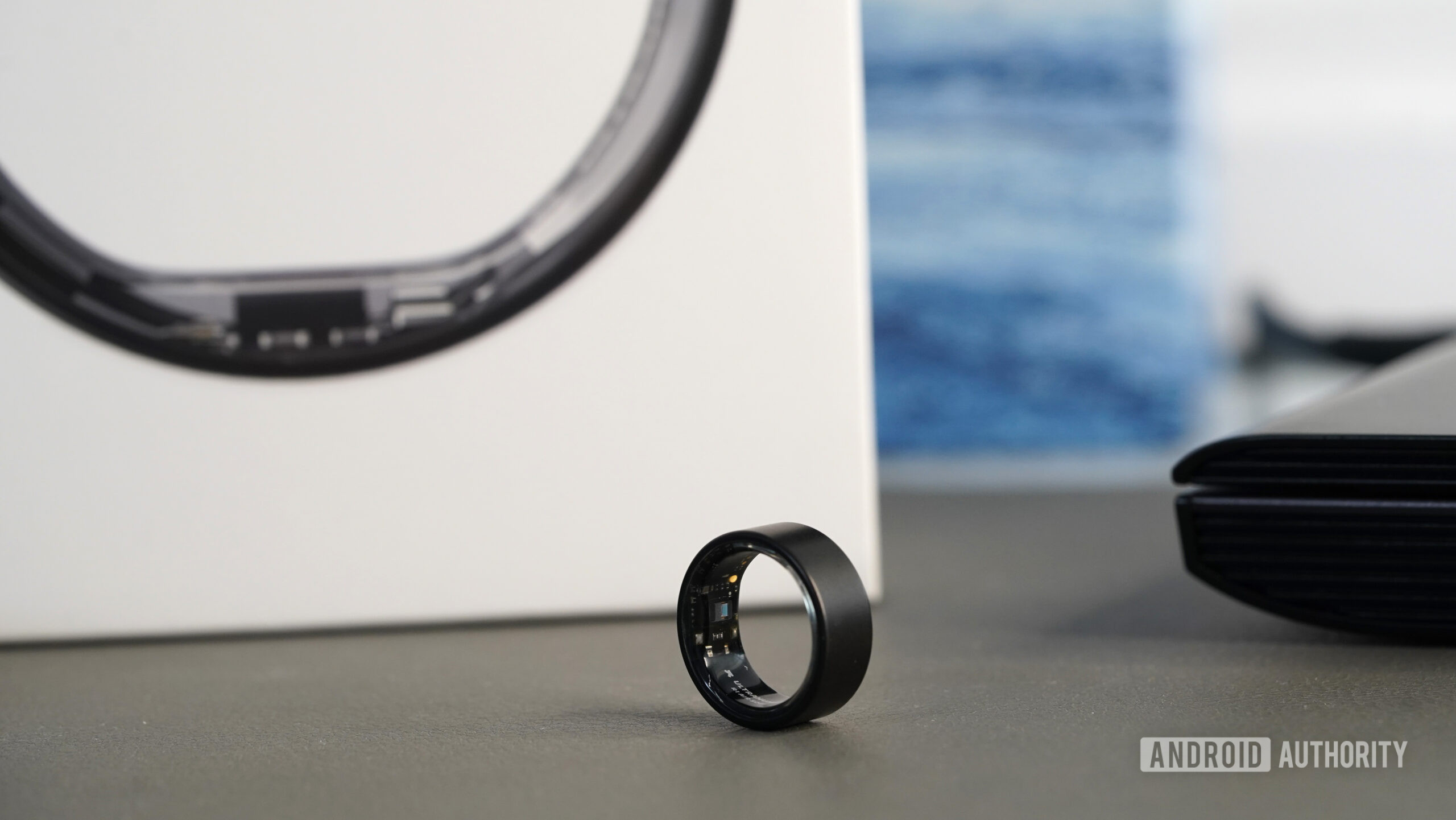
No Samsung, no subscription fees: Is the Ultrahuman Ring Air a good Galaxy Ring alternative?
September 15, 2024
Ultrahuman Ring Air
MSRP: $349.00
What we like
What we don't like
Ultrahuman Ring Air

There are more players in the smart ring game than ever, including big names that tend to overshadow the rest. Yet, in the face of Samsung’s recent entrant, the Galaxy Ring, and the ever-popular Oura Ring 3, the Ultrahuman Ring Air offers an alternative: no subscription and no need for ecosystem loyalty. Find out how the ring performs and whether it’s worth considering at checkout.
The smart ring form factor
Like most smart rings, the biggest selling point of the Ultrahuman Ring Air is its slight form factor and stealthy tracking capabilities. Dubbing anything as light as air is a bold statement, but the smart ring really is quite lightweight. Weighing in at 2.4 to 3.6 grams (depending on your size), it aligns with the Galaxy Ring despite being slightly wider. It also has a smoother interior than both Oura and Samsung’s offerings, making it easier to slip on and more comfortable. Ultrahuman also utilizes a sizing kit to help users achieve an appropriate fit.
Though still a wide band, the Ultrahuman Ring Air is truly lightweight and very comfortable.
Its straight edges are neat, though a bit masculine, and it definitely makes a bulky impression visually. It comes in five finishes, including Raw Titanium, Aster Black, Bionic Gold, Space Silver, and Matte Gray, the last of which you can see in this review. I found the finish durable and similar to that of Samsung’s lineup. Personally, I prefer Oura’s matte option, which I find less stark.
As always, users can peek “behind the curtain” at the sensors and LED lights on the interior of the ring. It packs a PPG sensor, skin temperature sensor, six-axis motion sensors, and a collection of LEDs for heart rate and SpO2 monitoring. Like the Oura and Samsung rings, the Air doesn’t pack a GPS on board or NFC support for contactless payments. In short, it looks like, feels like, and crams in exactly what smart ring shoppers are likely to expect, all without weighing down your encircled digit.
What does the Ultrahuman Ring Air do?
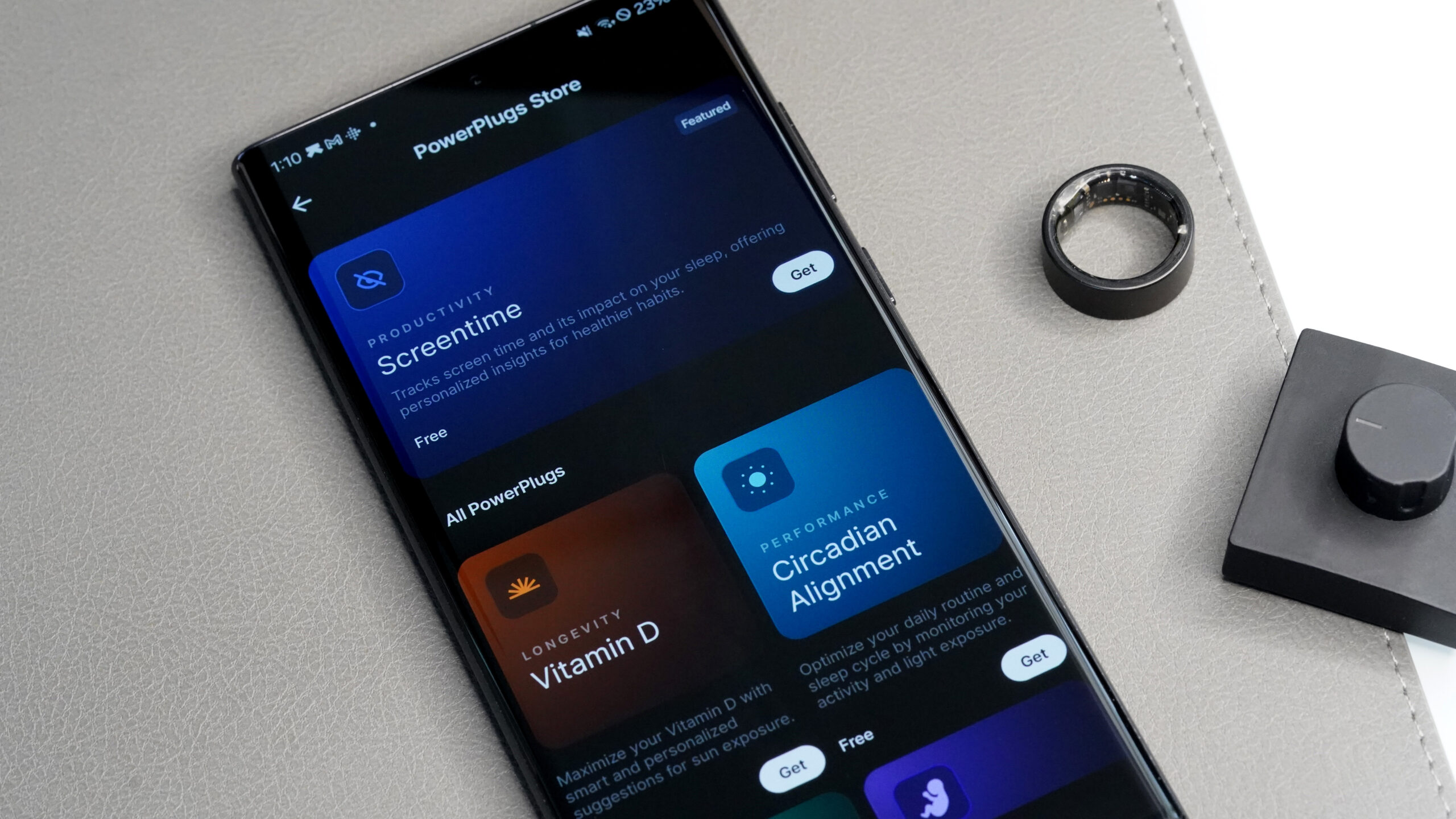
Starting with the buzzworthy, the Ultrahuman Ring Air recently added AFib detection to its spec sheet, an advanced health tool not found on other smart rings. Unfortunately, the tool is only regionally available (not yet supported in the US) and requires a monthly fee as part of the company’s PowerPlugs store/service. In addition to its own tools, Ultrahuman opened its API to developers to facilitate PowerPlugs, granting third parties access to raw data to create apps that further bolster the Ring Air experience. The result is many useful tools, or PowerPlugs, like screentime monitoring, caffeine management, circadian alignment, pregnancy insights, and cycling tracking.
Essentially an app store for a smart ring, Ultrahuman's PowerPlug platform introduces an intriguing concept.
However, while some of these tools are free, others incur a fee, diminishing the device’s “subscription-free” vibe. In general, the concept of an app store on a smart ring is intriguing, but the addition of individual fees is less attractive. I am interested to see what PowerPlugs will continue to develop and whether the combined costs will equate to an Oura subscription after all.
The base experience, however, remains completely free after your initial purchase. This includes step, distance, and calorie tracking, heart and HRV monitoring, stress and skin temperature tracking, and sleep tracking, including all the expected overnight metrics. In addition to individual markers, the Ultrahuman companion app provides a comprehensive sleep index and movement index (a.k.a. scores), as well as dynamic recovery and stress rhythm scores. The app also supports personalized sleep and activity goals as well as a timeline feature for recording events ranging from workouts and breathwork to consuming food.
At a glance, I find the app less than approachable. The big-picture scores help, and I appreciate the depth of data when you explore a bit, but the focus isn’t immediately clear. Oura does a better job presenting data in a digestible way. I’m left feeling simultaneously overloaded with numbers and lacking in takeaways. I also encountered a few issues syncing throughout my tests.
The app does offer a fairly robust experience beyond housing your tracked data. Users can connect Ultrahuman’s M1 blood glucose monitor for more insights into metabolic fitness in the Metabolism tab. They can also create camaraderie with other ring users by creating a “zone,” or group for data sharing and competing, in the Zones tab. Finally, in the Discover tab, users can access workouts, mindfulness sessions, and sleep collections, learn more about metabolism and activity through curated educational content, and listen to the Ultrahuman podcast.
Opportunities for improvement
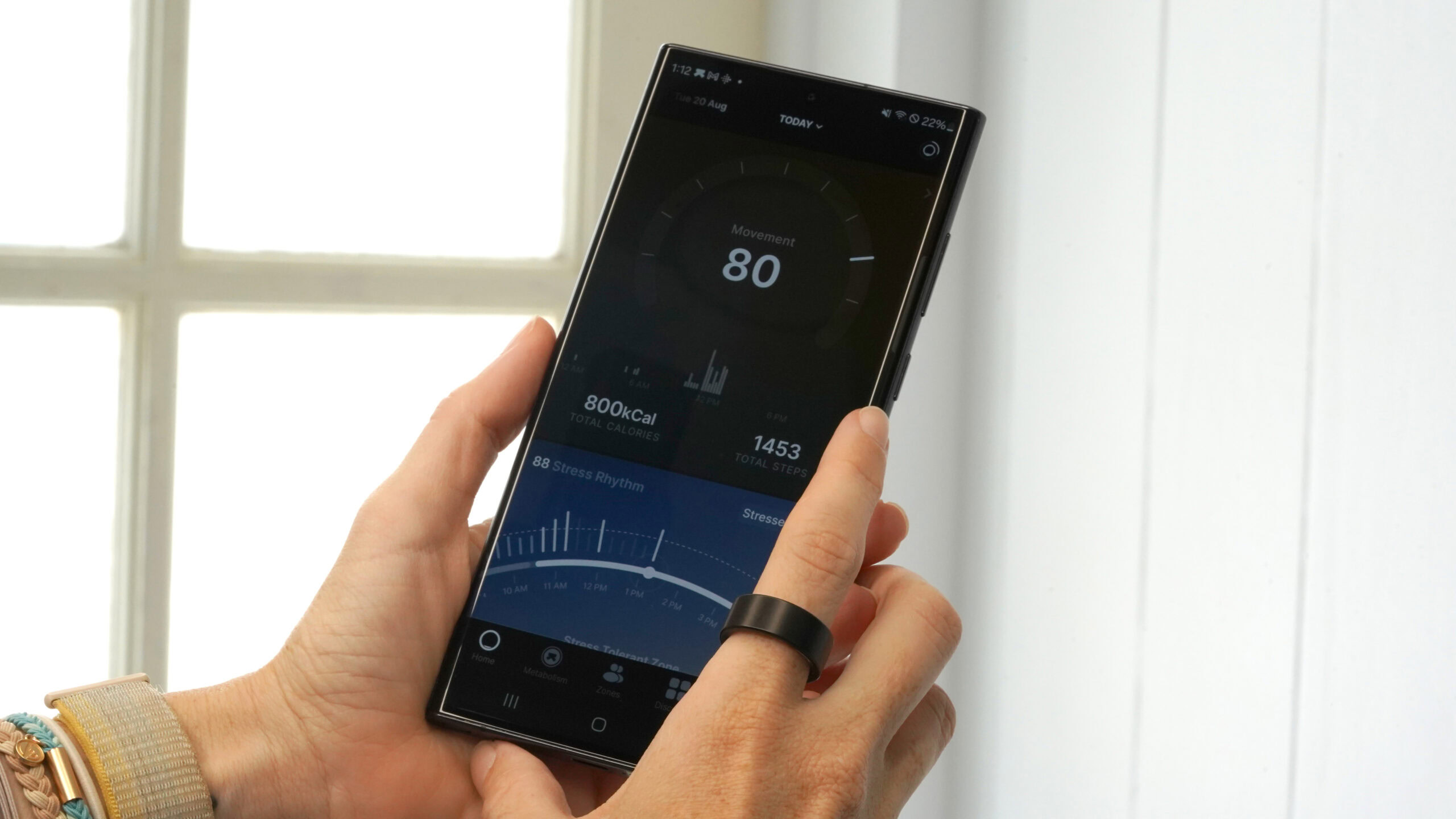
As I mentioned, syncing my Ultrahuman Ring Air was not as flawless as I would have hoped. I also had one manual workout that completely failed after 38 seconds; it was just enough time for me to think I was good to go and not realize until after the workout that I had nothing to show for it. Another workout recorded for over 12 hours even though I stopped it after 45 minutes. According to the app, Workout is still a Beta feature, so hopefully, these issues will be ironed out going forward.
Workout tracking on the Ultrahuman Ring Air was less consistent than I had hoped.
I didn’t have much better luck with automatically detected activity, and my step count was consistently lower than those of my Oura Ring and Apple Watch Ultra. My resting heart rate was also regularly around eight to ten beats lower than recorded on other devices, and my workout heart rates were even further underrecorded. On the sleep front, the ring did a decent job identifying my time in bed and nailed a few longer wake windows overnight. However, overall, it recorded lower heart rates and inconsistent sleep data compared to trusted devices.
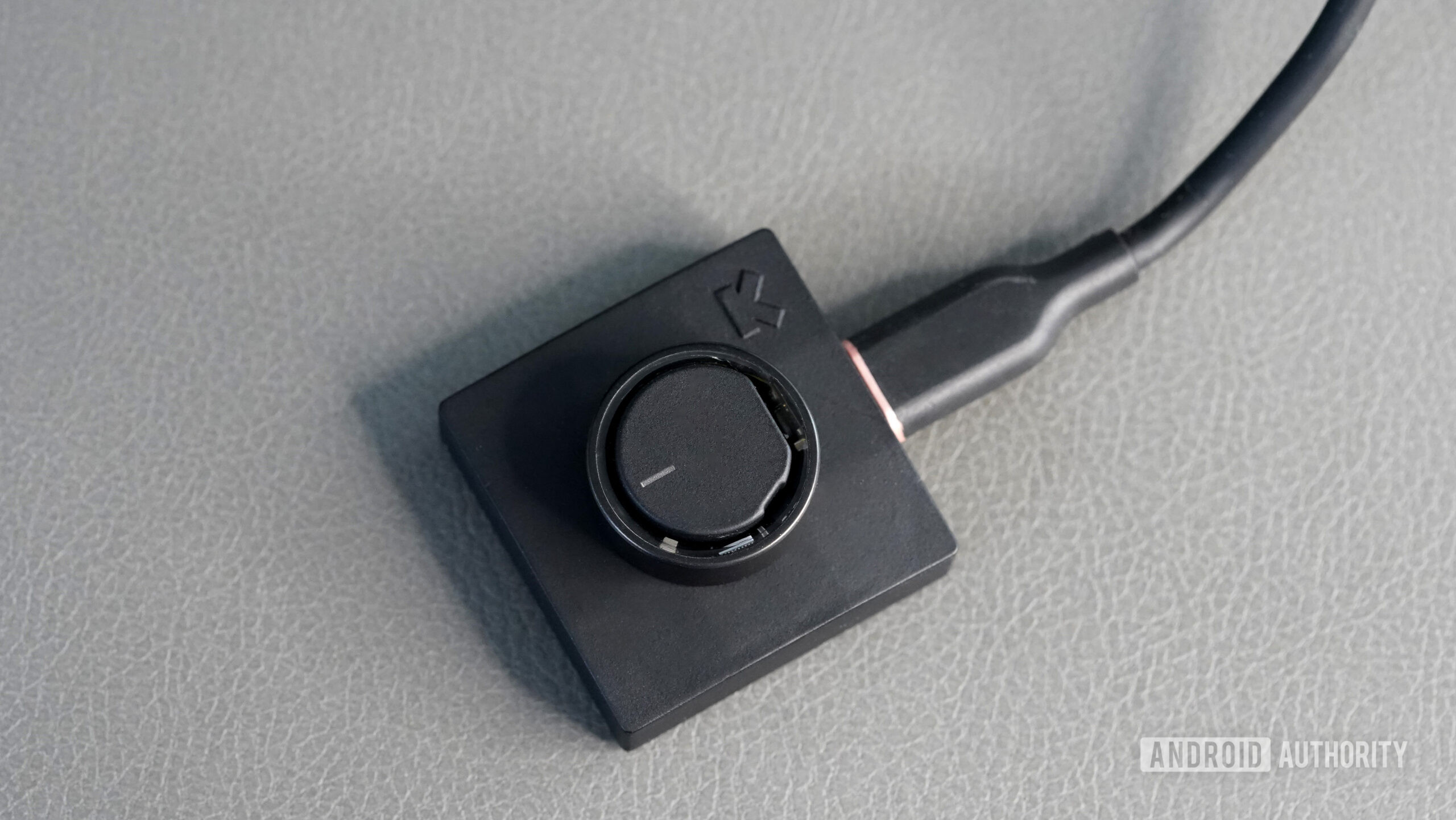
Finally, the battery life on the Ring Air needs improvement. Ultrahuman claims up to six days of battery life between charges but the ring lasted under four during this review. It also ships with a cradle-style charger similar to Oura’s, and after experiencing the portable charger of the Galaxy Ring, those types of chargers feel like a downgrade. Ultrahuman does have a new upgraded charger for sale on its website dubbed The Voyager, but it’s not immediately clear what improvements shoppers can gain from the new model other than an included carrying case.
Ultrahuman Ring Air review verdict: An Oura Ring and Galaxy Ring alternative with potential but not polish
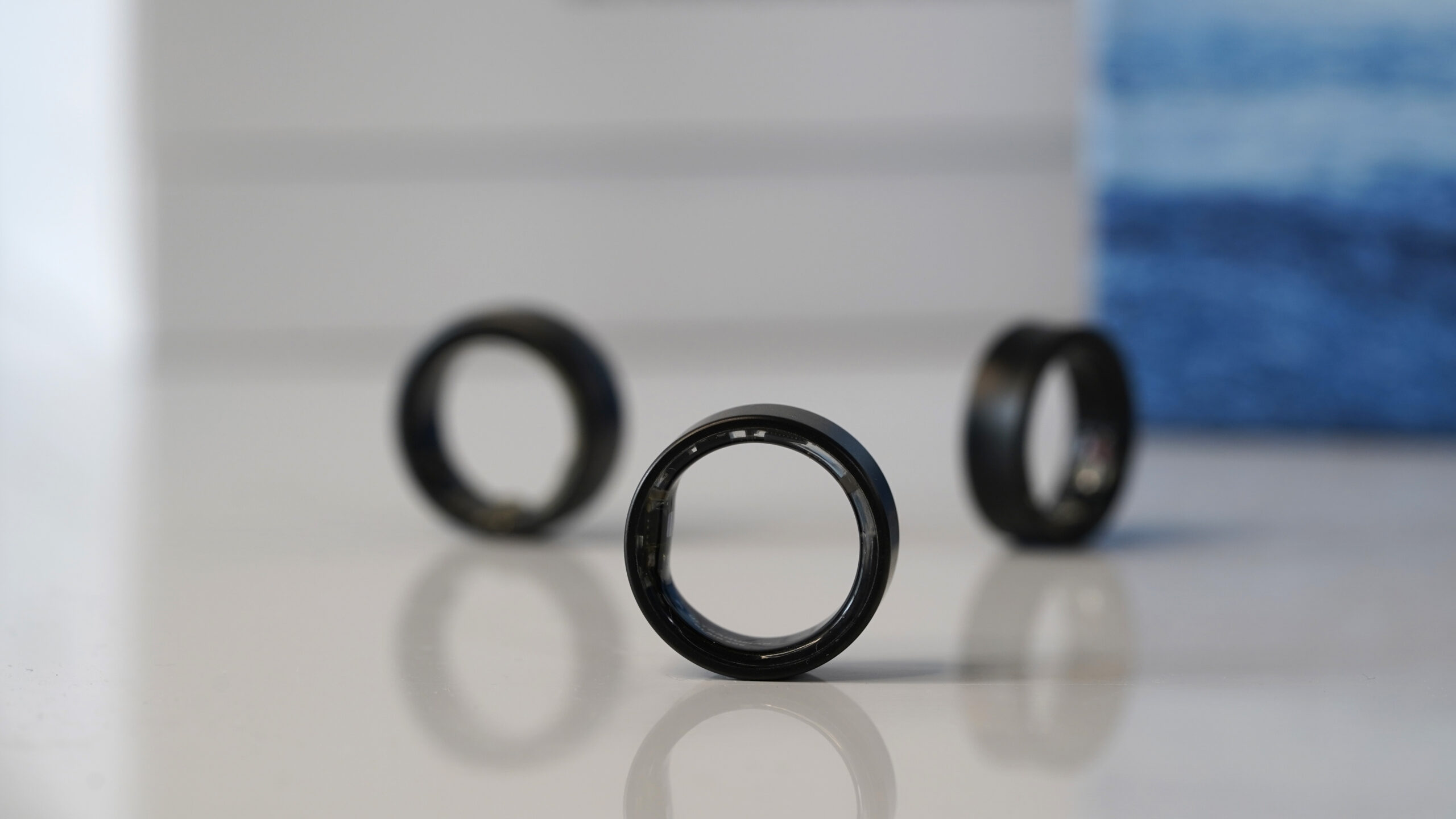
The Ultrahuman Ring Air is a welcome entry in the smart ring race. It’s also the first smart ring available for purchase from the Verizon online store, a partnership that helps the Ultrahuman brand expand into US markets.
It’s lightweight, comfortable, aims to deliver the basics, and allows non-Samsung users to consider a subscription-free option… kind of. My feelings are mixed regarding PowerPlugs, as I appreciate the potential to unlock a huge tool kit for users, but I also bristle at fine-print fees. Similarly, I like that Ultrahuman seems committed to advancing its fitness tracking offerings, but as of now, the reliability isn’t quite there. I want to see the app and algorithms get a bit more polished.
The Ultrahuman Ring Air and companion app have a lot of potential, but lack some of the refinement found on other brands.
Both Oura and Samsung are well-established names, Oura in the ring arena and Samsung in the tech/wearables sphere in general. Ultrahuman feels like an eager up-and-comer that is worth keeping an eye on. I appreciate that the brand is approaching the smart ring experience with innovation and already pushing ahead of the competition where it can (for example, launching AFib detection).
If you are already locked into the Samsung ecosystem, and especially if you have a Galaxy Watch, it’s hard not to recommend the Galaxy Ring ($399.99 at Amazon). Non-Samsung Android users and iOS users have a tougher choice. The Oura Ring 3 ($249 at Amazon) has been a leading contender for good reason, though you’ll have to deal with subscription fees. However, if you aren’t committed to the ring form factor, the best fitness tracking and great health monitoring are still found on the market’s top smartwatches.

Thank you for being part of our community. Read our Comment Policy before posting.